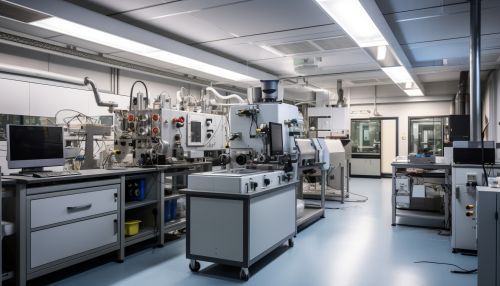Physics in the United Kingdom
Overview
Physics in the UK has a rich and diverse history, with many significant contributions to the field. The UK has been home to some of the most prominent physicists in history, including Sir Isaac Newton, James Clerk Maxwell, and Paul Dirac. These individuals, among others, have laid the groundwork for many of the fundamental principles and theories in physics today.


History of Physics in the UK
The history of physics in the UK can be traced back to the Middle Ages, when natural philosophy, the precursor to modern physics, was studied at universities such as Oxford and Cambridge. The 17th century saw the birth of modern physics in the UK with the work of Sir Isaac Newton. His laws of motion and universal law of gravitation laid the foundation for classical mechanics.
In the 19th century, James Clerk Maxwell developed the equations that predicted the existence of electromagnetic waves, thus unifying electricity, magnetism, and light into a single theory. This was a significant milestone in the history of physics, not just in the UK, but globally.
The 20th century saw further advancements with the development of quantum mechanics and the theory of relativity. Paul Dirac, a British physicist, made significant contributions to the early development of both quantum mechanics and quantum electrodynamics.
Physics Education in the UK
Physics education in the UK begins at the secondary school level with General Certificate of Secondary Education (GCSE) physics. This is followed by A-Level physics for students who wish to specialize further. At the university level, students can pursue undergraduate (BSc or MPhys), postgraduate (MSc), and doctoral (PhD) degrees in physics.
The UK is home to several world-renowned universities that offer physics programs, including the University of Oxford, the University of Cambridge, and Imperial College London. These institutions are known for their rigorous academic programs and their contributions to research in the field of physics.
Research and Development
The UK is a global leader in physics research and development. Numerous research institutions and laboratories across the country are engaged in cutting-edge research in various areas of physics, including particle physics, astrophysics, and condensed matter physics.
The Science and Technology Facilities Council (STFC) is a key player in the UK's physics research landscape. It funds and supports research in particle physics, nuclear physics, and space science. The STFC operates several major research facilities in the UK, including the Rutherford Appleton Laboratory and the Daresbury Laboratory.
Physics Societies and Organizations
There are several professional societies and organizations in the UK dedicated to physics. The Institute of Physics (IOP) is a scientific charity that works to advance physics education, research, and application. It has more than 20,000 members and organizes activities aimed at advancing the knowledge of physics.
The Royal Astronomical Society (RAS) is another notable organization. It promotes the study of astronomy, geophysics, and closely related branches of science. The RAS organizes scientific meetings, publishes journals, and acts as the UK adhering body to the International Astronomical Union and the International Union of Geodesy and Geophysics.
